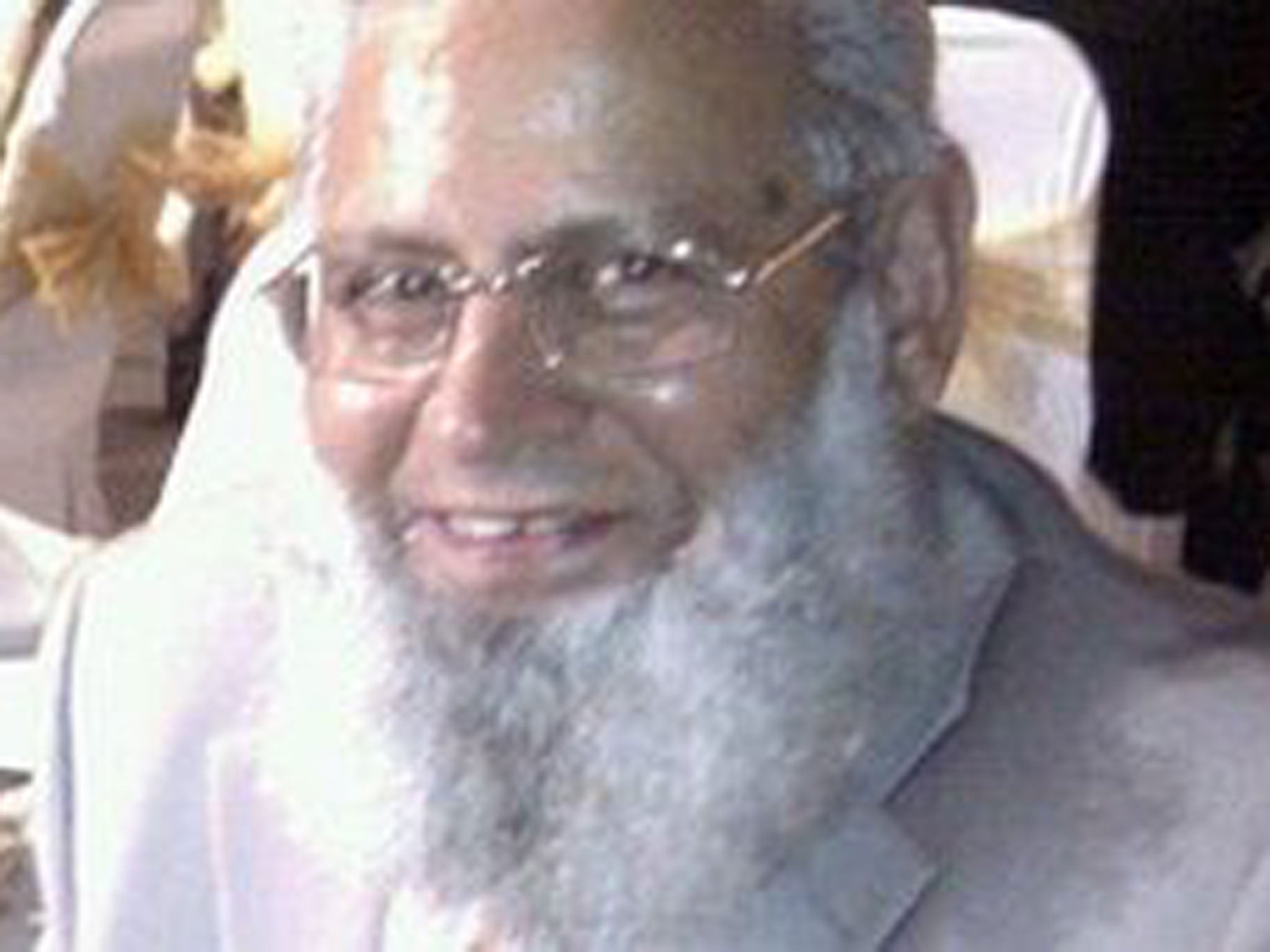The Independent's journalism is supported by our readers. When you purchase through links on our site, we may earn commission.
When my Muslim father was murdered by a terrorist in Birmingham, I realised something about the way we label killers
A neo-Nazi terrorist stabbed my father three times in the back as he walked home from prayers. And this week, the US saw a very similar crime

On the 29th April 2013, my father, Mohammed Saleem - 82 years old at the time - was singled out and murdered in Small Heath, Birmingham, on the very road he had lived on for over 30 years.
The motive for his death was allegedly because he was brown and dressed like a Muslim.
He was followed from the mosque after evening Ishaa prayers finished at 10.10pm by a Ukrainian neo-Nazi terrorist who had been in the country for less than a week. My father was then stabbed brutally three times from behind.
Pavlo Lapshyn, known for his racist and neo-Nazi activity in Ukraine, was given a work placement in Small Heath – an area densely populated by Muslims. As soon as he entered the country he embarked on a campaign of terror and murder.
Lapshyn is now serving 40 years for my father’s murder and three mosque bombings in the West Midlands – all acts of terrorism. He was charged under terrorism laws. Yet, to this day, the media, the police and the government have not treated Pavlo as they would if the terrorist was a Muslim.
When Lee Rigby was murdered - three weeks after my dad - his murder received global news coverage and cries of protest. But my father’s brutal murder on the street, in a similar attack, received comparatively little attention. Instead of loud and heartfelt condemnation from politicians and the police, instead of hashtags and long discussions about the danger of neo-Nazi beliefs in our society, there was deafening silence. A Muslim terrorist, on the other hand, would certainly have led to conversations about the dangers of radical Islamism.
Similarly, there was little media reporting following the case of 81-year-old Muhsin Ahmed who was punched, kicked and stamped on the head - which led to fatal injuries - as he walked to his mosque in Rotherham for morning prayers on August 10th 2015. This case, which has just come to court, brought back memories of my father’s brutal murder in an Islamophobic terrorist attack.
And this week, there was hardly any coverage of Abdul Jamil Kamawal, the 68-year-old Muslim man killed last week on his family's property in Metzger, Oregon in the US.
Michael Troxell, 27, is being held without bail at Washington County Jail, facing murder charges. Many are speculating that the attack was a religiously motivated, Islamophobic hate crime. But mainstream, national US publications have largely failed to report on the killing. The total absence of coverage (apart from a few local news outlets) since this news broke is deeply troubling.
The rise of bigotry stirred up by Donald Trump and his supporters in recent months has given Islamophobes and far-right extremists more confidence to perpetrate such hate crimes. Consistently biased media reporting or lack of reporting when it comes to Muslim hate crimes and murders has been commonplace in the USA. That is also becoming a problem in the UK.
My father was attacked because he was a Muslim - not just because he was Asian, but because of his faith. It was Islamophobia, pure and simple, rather than racism – and it’s important to differentiate between the two.
Islamophobia is increasingly prevalent and Islamophobic attacks continue to rise. They are fuelled by sensationalist media headlines and reinforced by narratives where Muslims are treated as potential terrorists until proven otherwise. The government’s infamous agenda in weeding out extremist children from nursery school onwards speaks volumes about how prevalent this narrative really is.
What hope is there for generations to come if we don’t make a stand against all forms of hate? And what hope is there, here and now, that we will overcome the pernicious evil of Islamophobia, if we don’t name the very problem which we need to confront?
The death of Abdul Jamil Kamawal may be one of many. But it’s important that we pay attention to the killings of Muslims – each and every one of them – and resist the temptation to turn a blind eye.
Join our commenting forum
Join thought-provoking conversations, follow other Independent readers and see their replies
Comments
Bookmark popover
Removed from bookmarks